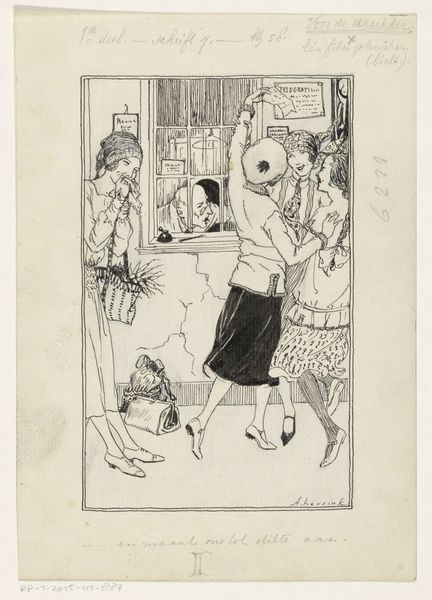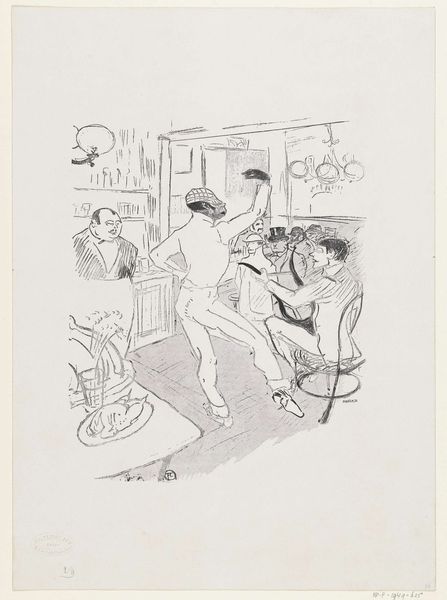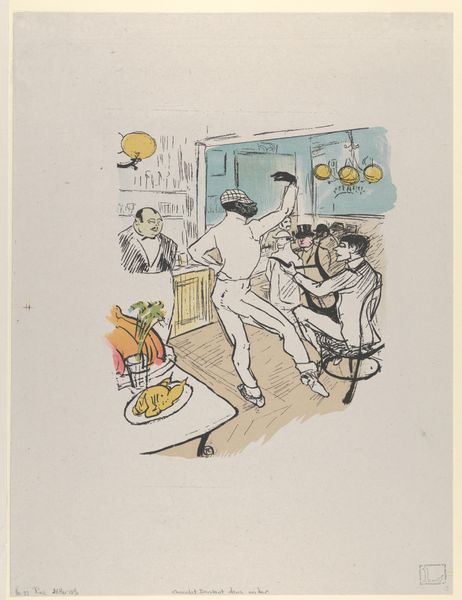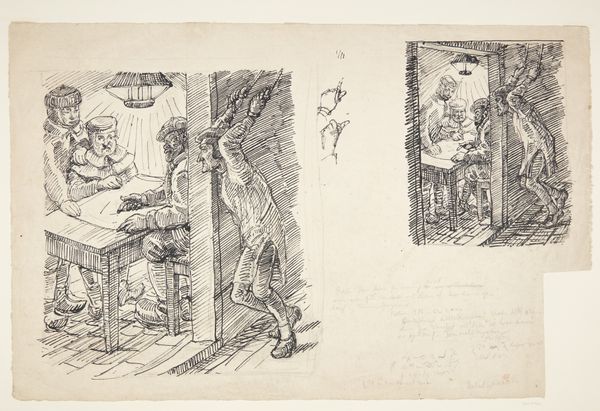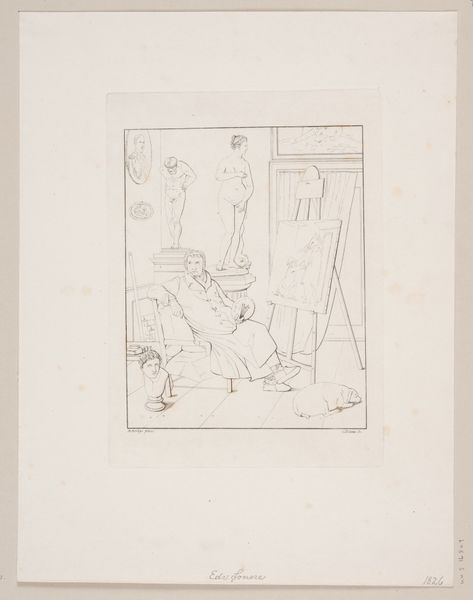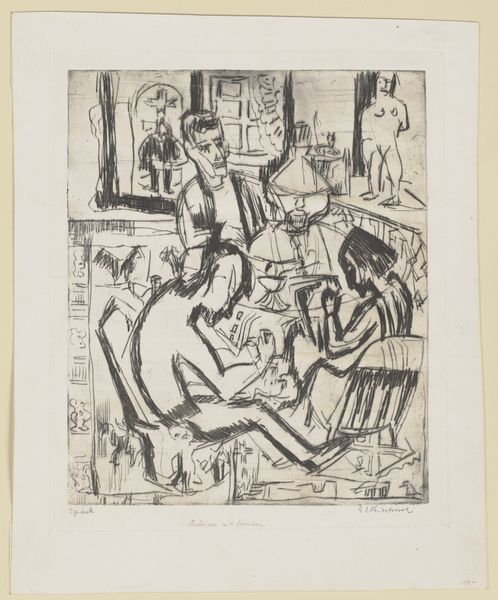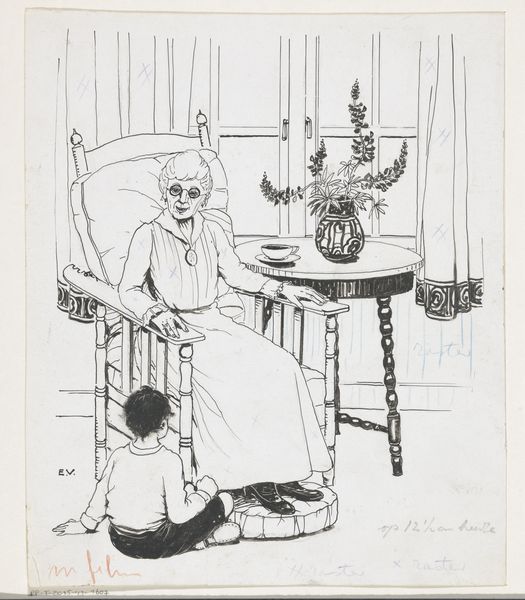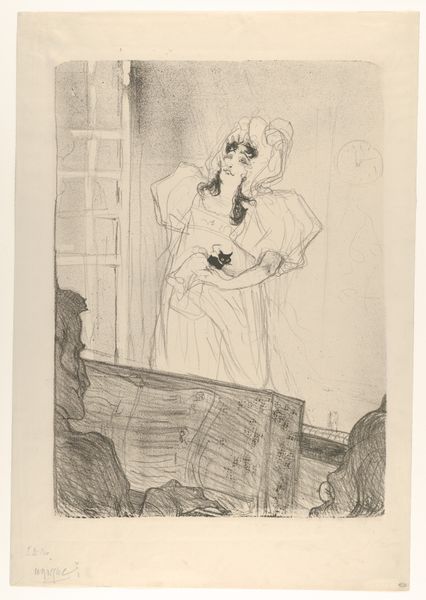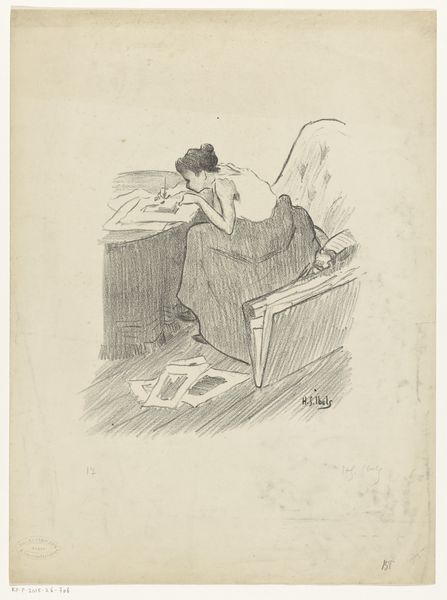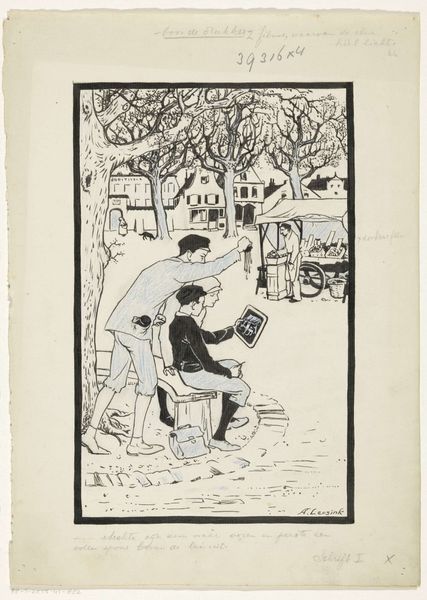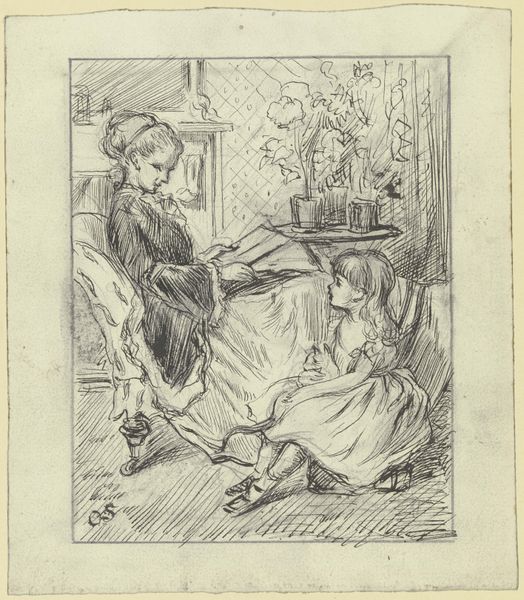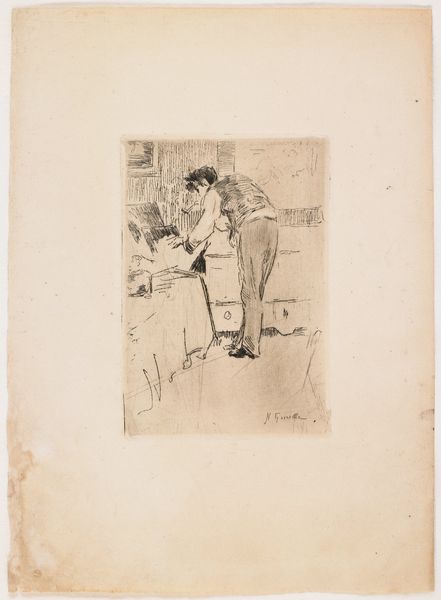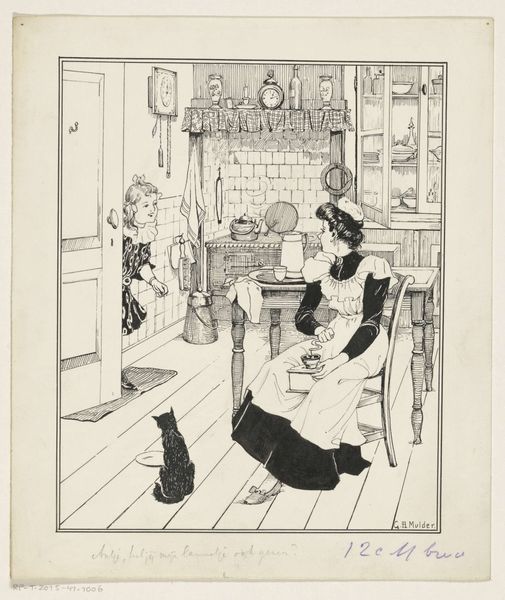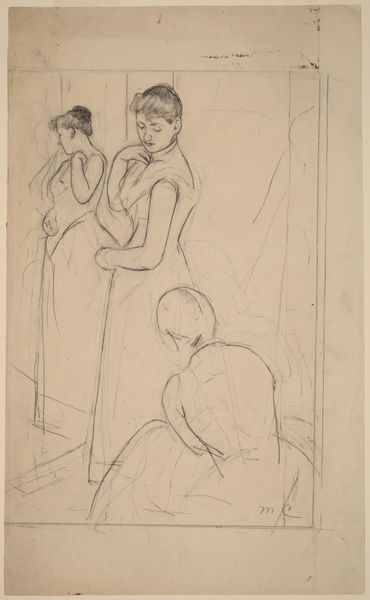
drawing, ink, pencil, pen
#
drawing
#
comic strip sketch
#
imaginative character sketch
#
quirky illustration
#
narrative-art
#
caricature
#
cartoon sketch
#
figuration
#
personal sketchbook
#
ink
#
ink drawing experimentation
#
pencil
#
comic
#
sketchbook drawing
#
pen
#
genre-painting
#
storyboard and sketchbook work
#
cartoon carciture
#
sketchbook art
Dimensions: height 322 mm, width 230 mm
Copyright: Rijks Museum: Open Domain
Curator: Well, that's chaotic! The eye really struggles to find a restful point in that scene. What am I even looking at? Editor: This intriguing piece, "Vechtende Hein in een tekenlokaal," predates 1926 and is attributed to Anny Leusink. Primarily rendered in ink and pencil, it presents a glimpse into a drawing classroom. Given its playful and caricatured approach to representation, how does it reflect, perhaps satirize, the artistic environment of its time? Curator: Satirize, you say? It absolutely could. I see the aftermath of creation everywhere - the scattered materials, the broken stool in the foreground - which makes me wonder, was Leusink aiming to depict the messy, potentially conflict-ridden labour involved in art education? Was it a particularly turbulent time to be at art school? Editor: Contextually, post-World War I artistic circles were in turmoil, grappling with new aesthetics and challenging established norms. Images and representations were critical to political ideologies at that moment. A chaotic scene in an art class becomes rather less slapstick if one contextualises the role of visuality in the propaganda arms race of the 20th century. It also chimes with broader institutional upheaval, if you think about it. Curator: And, thinking about the materials… Ink and pencil would've been incredibly accessible, right? What kind of institutions and publics was the drawing trying to engage in this way? Editor: That's right; such media democratized artistic production, making it more readily available to a broader audience, not just those traditionally privileged enough to access oil paints and formal training. Pen, pencil, paper! Curator: A real democratisation of the artistic and institutional ecosystem… And, while ostensibly a simple cartoon, the work is far from naïve in that historical context, suggesting an intentionality on Leusink's part to create accessible commentary through accessible materials. Editor: Exactly! And consider how Leusink used her craft as a potent voice to maybe confront hierarchies and inequalities in art establishments and to probe their sociopolitical effects and realities… which maybe brings us full circle, in a way, with our first impressions of the artwork, that felt simply ‘chaotic’. Curator: This makes it abundantly clear how artistic movements, or even classroom conflicts as we see here, become material echoes of the prevailing social landscape. Editor: A great perspective, as always. Thanks.
Comments
No comments
Be the first to comment and join the conversation on the ultimate creative platform.
